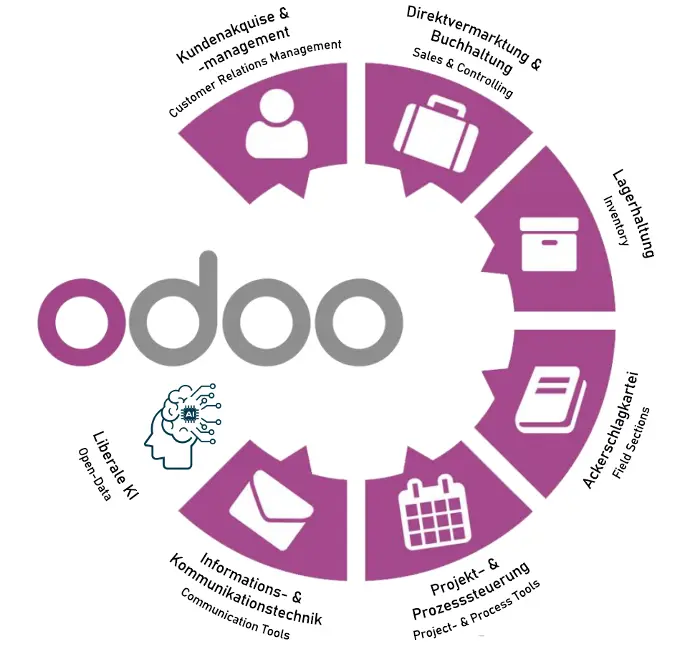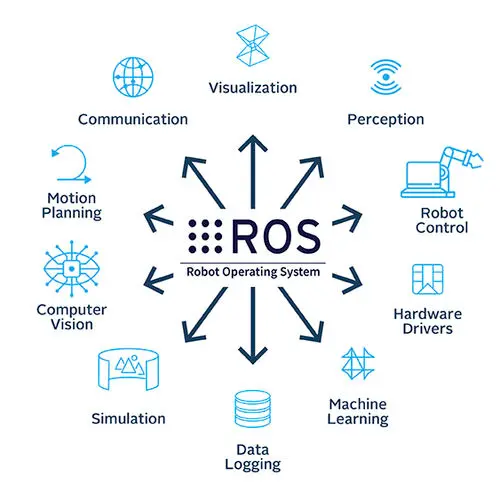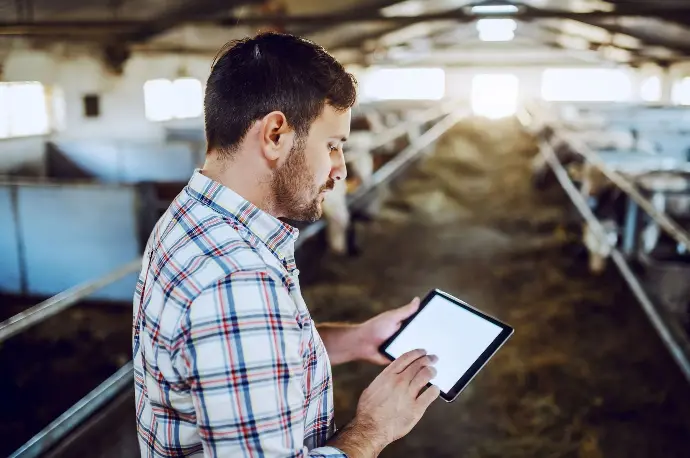Open source frameworks of the ORB:
ODOO und ROS
ODOO
ODOO is a flexible open-core ERP framework that integrates a variety of business applications such as sales, human resources and warehouse management in a central database. With over 16,000 open extension modules, ODOO offers a modular system that can be customised and extended. This flexibility enables ORB members to customise and extend the platform to meet their specific needs - a decisive advantage over traditional ERP systems, which are often rigid and inflexible. ODOO is appreciated and successfully used by more than 12 million users worldwide, both in small companies and large organisations.
ODOO plays a central role in agriculture by integrating agricultural-specific functionalities such as digital field maps, plant databases and herd management, thereby creating a comprehensive platform for agricultural operations. With its open architecture, ODOO offers a cost-effective and powerful ERP solution that drives digital transformation in agriculture. The platform enables farmers to manage business processes efficiently and make informed decisions based on accurate data, which is particularly beneficial for the approximately 250,000 German farmers. In addition, ODOO supports the automation of agricultural processes by serving as a central interface for various applications and technologies that make agriculture more efficient and sustainable.

ROS
ROS (Robot Operating System) is a widely used open source framework for the development of robotics applications that aims to reuse code and simplify development processes. It provides a standardised platform with a variety of software libraries and tools that enable developers to develop robotics applications efficiently and cost-effectively. Thanks to its modularity and open structure, ROS can be flexibly integrated into existing software solutions and adapted to individual requirements, which makes it particularly suitable for use in agriculture.
Thanks to continuous further development by a global community of millions of developers, ROS enables rapid implementation and practical application of innovations in robotics. It has established itself as the standard in industrial, automotive and agricultural robotics and is continuously improved and expanded through constant collaboration within the community.
Within ORB, ROS plays a central role in the integration of modern automation technologies into agricultural processes. By connecting to ROS, systems such as autonomous harvesting and planting robots can be seamlessly integrated into ORB-FMS, which significantly increases the efficiency and accuracy of agricultural processes. This integration makes it possible to collect real-time data from sensors and machines and incorporate it directly into decision-making processes. ROS thus not only lays the foundation for physical automation, but also for the data-driven optimisation of agricultural operations through ORB-FMS. The open and modular structure of ROS fits perfectly with ORB's open innovation approach, which aims to continuously develop and adapt the technology to the real needs of agriculture.



